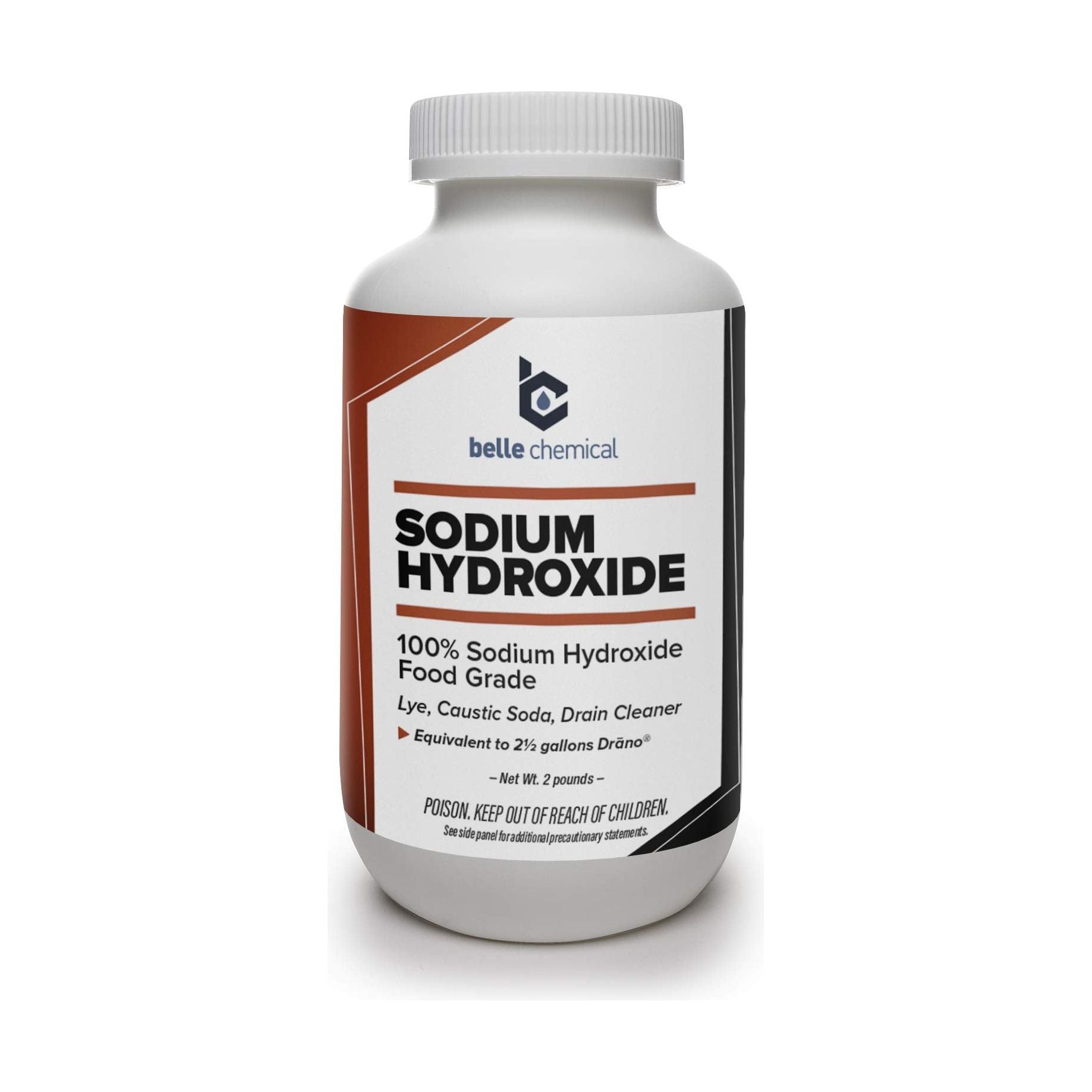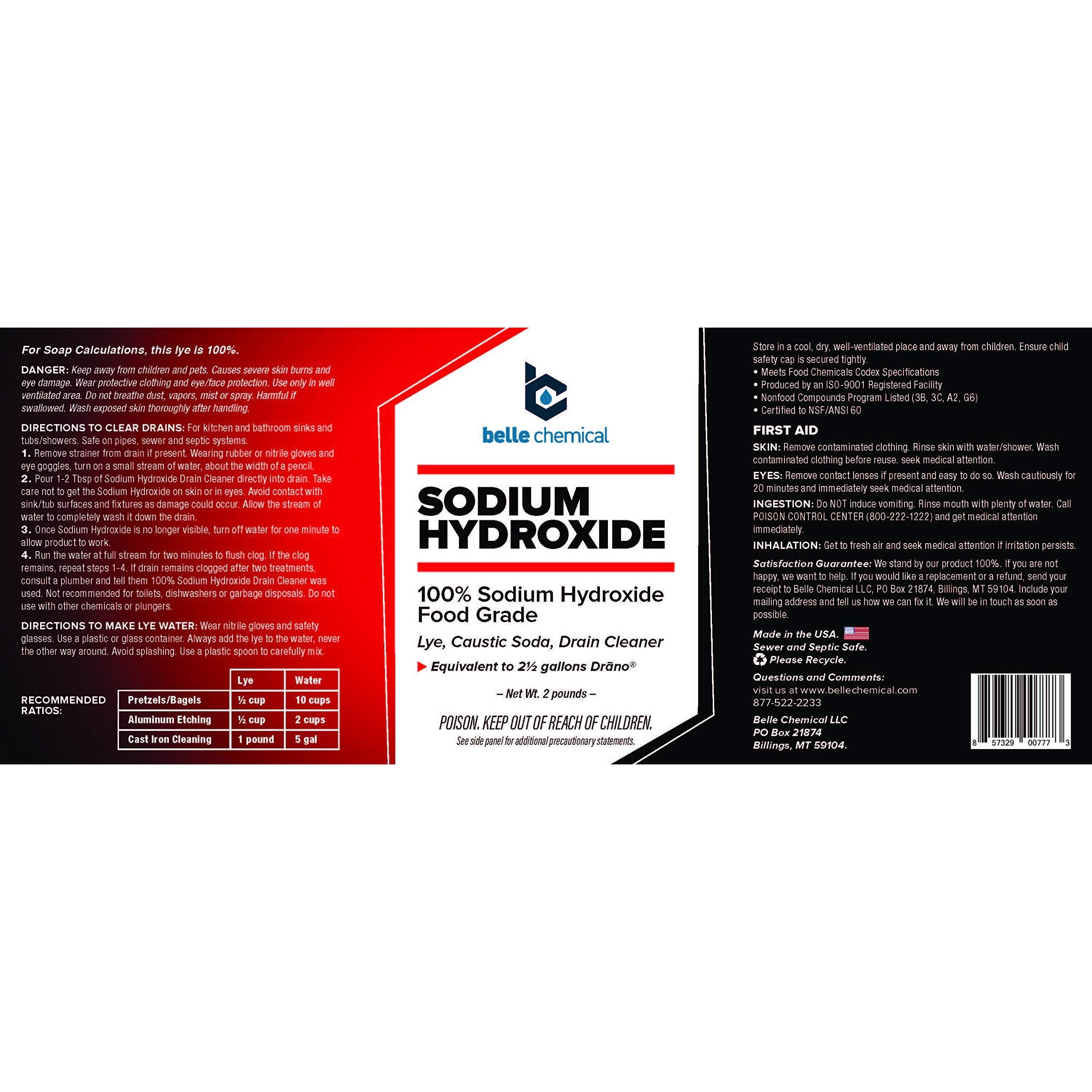

BELLE CHEMICAL
Sodium Hydroxide - Pure - Food Grade (Caustic Soda, Lye) (2 Pound Jar)
Note: This product is imported from the United States of America.
- Reclosable HDPE Jar
- Top Quality, Premium Lye
- Great for making soap, as a cleaner, or for food prep
- Food-Grade USP/FCC
| Brand | Belle Chemical |
| Item Weight | 0.91 Kilograms |
| Item Volume | 25 Fluid Ounces |
This product is imported from USA
Delivery within 6 to 12 business
- Free Shipping on all orders above AED 150
- Free Returns within 30 days | Subject to T&C
Bought together
Imported from USA
Sodium Hydroxide - Pure - Food Grade (Caustic Soda, Lye) (2 Pound Jar)
This is the highest quality food grade lye available. Also known as NaOH and caustic soda. This is an inorganic chemical at minimum 99% pure. It is a white solid and highly caustic metallic base and alkali salt. Sodium hydroxide is soluble in water, ethanol and methanol. This alkali is deliquescent and readily absorbs moisture and carbon dioxide in air. In Soap Making: Lye is mixed with water to create a lye solution. Lye solution, when mixed with fats and oils, will cause a chemical reaction called saponification (fancy for soap). The result of saponification is beautiful handmade soap. In Food Prep: Food uses of sodium hydroxide include wGreat ashing or chemical peeling of fruits and vegetables, chocolate and cocoa processing, caramel coloring production, poultry scalding, soft drink processing, and thickening ice cream. Olives are often soaked in sodium hydroxide for softening; Pretzels and German lye rolls are glazed with a sodium hydroxide solution before baking to make them crisp. Owing to the difficulty in obtaining food grade sodium hydroxide in small quantities for home use, sodium carbonate is often used in place of sodium hydroxide. In Cleaning: Industrial, or technical, grade lye is often used as a cleaner and is the active ingredient in common drain cleaners. Sodium silicate is often used as a corrosion inhibitor to prevent lye from corroding pipes while it removes the blockage. Citric acid, or other acids, are often used in coordination with lye as it creates an exothermic reaction (heat) to leave sodium acetate (a salt) and water. An alternative, but less effective alternative is sodium bicarbonate.





